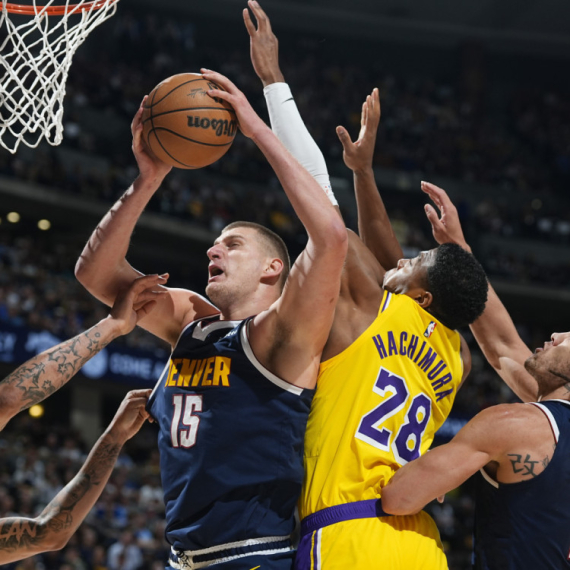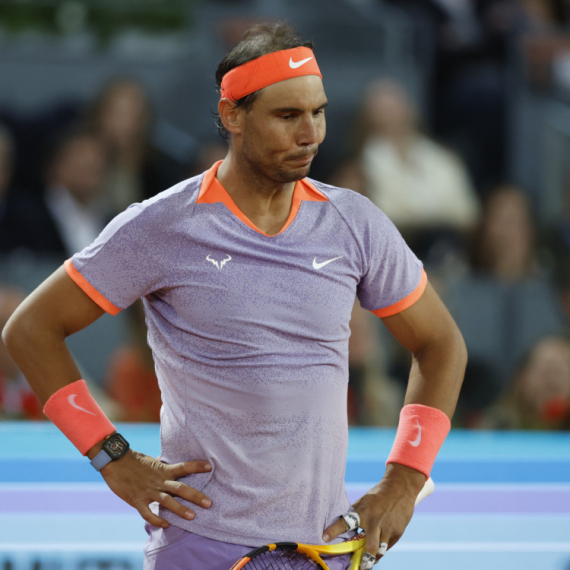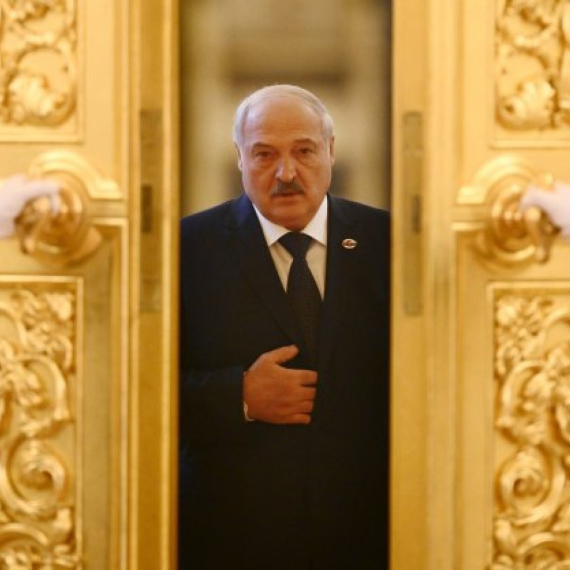UN envoy condemns Burma arrests
U.N. special envoy Ibrahim Gambari told Myanmar on Monday to stop arresting dissidents.
Monday, 15.10.2007.
09:35

U.N. special envoy Ibrahim Gambari told Myanmar on Monday to stop arresting dissidents. The announcement coincides with the military junta's vow to plough on with its own "roadmap to democracy" regardless of widespread international criticism. UN envoy condemns Burma arrests "We will go ahead. We will not deviate from our path," the official New Light of Myanmar said in a commentary on the generals' seven-point masterplan, unveiled in 2003, to chart a course towards civilian government after 45 years of army rule. "Those who sincerely want to hold hands with us are welcome," the paper continued in uncompromising tone. "We will get rid of the barriers and obstacles on the way." Gambari, in Bangkok at the start of a regional tour to drum up support for a coordinated front against the junta, said actions spoke louder than words -- and that the continued arrests and intimidation of activists were "extremely disturbing". "These actions must stop at once," he told reporters after a one-hour meeting with Foreign Minister Nitya Pibulsonggram. "I'm more concerned about what they're doing, not what they're saying," Gambari said. "The United Nations calls on the Myanmar government to release all political detainees, including those arrested during the demonstrations." After Thailand, Gambari said he would be heading to Malaysia, India and China -- all of them trading partners of Burma which so far have opposed any imposition of sanctions, the tactic preferred by Western governments. Gambari will also travel to Tokyo, where emotions are still high at the shooting of a Japanese journalist, one of at least 10 people killed when soldiers were sent in to clear the streets of the biggest anti-junta protests in nearly 20 years. Myanmar official media described the death of Kenji Nagai as "an accident or an unfortunate incident", but said the 50-year-old cameraman was partly to blame. "He came to the country on a tourist visa and acted like a journalist dishonestly," the New Light said. "One who entered the country on a tourist visa should act like a tourist." Video footage smuggled out of the former Burma, which routinely denies foreign reporters media visas, appeared to show Nagai being shot dead at point blank range by a soldier. More arrests Despite unprecedented international outrage at its crackdown, including a rare call for "restraint" from main ally China, the generals have been cranking up the pressure on the domestic front. At the weekend, they brought their stage-managed government rallies to Yangon, the main city, with tens of thousands of people press-ganged into a sports stadium to applaud the democracy plan and a constitution-drafting National Convention. Police, still raiding homes more than two weeks after the demonstrations were crushed, also arrested Htay Kywe, a prominent student activist in an uprising in 1988 who had managed to evade capture for nearly two months. Htay Kywe's so-called "88 Generation Students Group" were the brains behind mid-August's small fuel-price protests that quickly snowballed into a nationwide movement, spearheaded by the revered Buddhist monks, against military rule. In a rare concession at the height of the crackdown, Senior General Than Shwe allowed Gambari into the country for an audience with himself and two short meetings with detained opposition leader Aung San Suu Kyi. Gambari is slated to return to Myanmar in November, but said he hoped his Asia tour would demonstrate such a united regional front that he might be granted a visa sooner. "We believe that if we pool all our efforts, we could move the situation in Myanmar in the right direction," he said.
UN envoy condemns Burma arrests
"We will go ahead. We will not deviate from our path," the official New Light of Myanmar said in a commentary on the generals' seven-point masterplan, unveiled in 2003, to chart a course towards civilian government after 45 years of army rule."Those who sincerely want to hold hands with us are welcome," the paper continued in uncompromising tone. "We will get rid of the barriers and obstacles on the way."
Gambari, in Bangkok at the start of a regional tour to drum up support for a coordinated front against the junta, said actions spoke louder than words -- and that the continued arrests and intimidation of activists were "extremely disturbing".
"These actions must stop at once," he told reporters after a one-hour meeting with Foreign Minister Nitya Pibulsonggram.
"I'm more concerned about what they're doing, not what they're saying," Gambari said. "The United Nations calls on the Myanmar government to release all political detainees, including those arrested during the demonstrations."
After Thailand, Gambari said he would be heading to Malaysia, India and China -- all of them trading partners of Burma which so far have opposed any imposition of sanctions, the tactic preferred by Western governments.
Gambari will also travel to Tokyo, where emotions are still high at the shooting of a Japanese journalist, one of at least 10 people killed when soldiers were sent in to clear the streets of the biggest anti-junta protests in nearly 20 years.
Myanmar official media described the death of Kenji Nagai as "an accident or an unfortunate incident", but said the 50-year-old cameraman was partly to blame.
"He came to the country on a tourist visa and acted like a journalist dishonestly," the New Light said. "One who entered the country on a tourist visa should act like a tourist."
Video footage smuggled out of the former Burma, which routinely denies foreign reporters media visas, appeared to show Nagai being shot dead at point blank range by a soldier.
More arrests
Despite unprecedented international outrage at its crackdown, including a rare call for "restraint" from main ally China, the generals have been cranking up the pressure on the domestic front.At the weekend, they brought their stage-managed government rallies to Yangon, the main city, with tens of thousands of people press-ganged into a sports stadium to applaud the democracy plan and a constitution-drafting National Convention.
Police, still raiding homes more than two weeks after the demonstrations were crushed, also arrested Htay Kywe, a prominent student activist in an uprising in 1988 who had managed to evade capture for nearly two months.
Htay Kywe's so-called "88 Generation Students Group" were the brains behind mid-August's small fuel-price protests that quickly snowballed into a nationwide movement, spearheaded by the revered Buddhist monks, against military rule.
In a rare concession at the height of the crackdown, Senior General Than Shwe allowed Gambari into the country for an audience with himself and two short meetings with detained opposition leader Aung San Suu Kyi.
Gambari is slated to return to Myanmar in November, but said he hoped his Asia tour would demonstrate such a united regional front that he might be granted a visa sooner.
"We believe that if we pool all our efforts, we could move the situation in Myanmar in the right direction," he said.
















Komentari 0